Calculus
Chapters
What does it mean for a function to be differentiable?
What does it mean for a function to be differentiable?
A differentiable function is one you can differentiate.... everywhere!
That sounds a bit like a dictionary definition, doesn't it? Completely accurate, but not very helpful! But, if you explore this idea a little further, you'll find that it tells you exactly what "differentiable means".
Differentiable functions are nice, smooth curvy animals. They have no gaps or pointy bits.
Example
Is the function \(f(x) = x^3 + 3x^2 + 2x\) differentiable?
The rules of differentiation tell us that the derivative of \(x^3\) is \(3x^2\), the derivative of \(x^2\) is \(2x\), and the derivative of \(x\) is \(1\). So, the derivative of \(f\) is \(f'(x) = 3x^2 + 6x + 2\).
This derivative exists for every possible value of \(x\)! So, \(f\) is differentiable: we can find it's derivative everywhere!
Making the definition more precise (a.k.a. keeping the mathematicians happy)
Most of the above definition is perfectly acceptable. The only thing we really need to nail down is what we mean by "everywhere". Does this mean that we take the function on a trip, and try to differentiate it at every place we visit? Of course not! What we mean is that we can evaluate its derivative at every value of \(x\) that we can input into the function definition. There's a technical term for these \(x\)-values:
Domain of a function
The domain of a function is the set of allowable \(x\)-values (or input values) for the function. Sometimes, the domain of the function is explicitly stated. Other times, we have to work it out from what the function definition will allow. In these cases, the domain will be the largest set of \(x\)-values that can be sensibly input into the function definition. For example, the function \(f(x)= \dfrac{1}{x}\) only makes sense for values of \(x\) that are not equal to zero. Its domain is the set \(\{x \in \mathbb{R}: x \neq 0\}\). In other words, it's the set of all real numbers that are not equal to zero.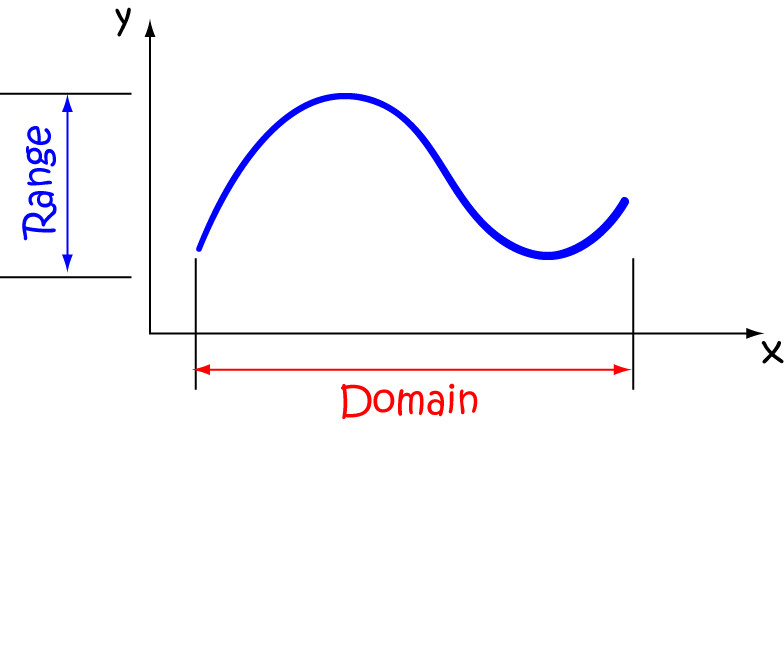
So, a function is differentiable if its derivative exists for every \(x\)-value in its domain.
Example
Let's have another look at our first example: \(f(x) = x^3 + 3x^2 + 2x\).
\(f(x)\) is a polynomial, so its function definition makes sense for all real numbers. Its domain is the set of all real numbers.
We found that \(f'(x) = 3x^2 + 6x + 2\), which is also a polynomial. So the derivative of \(f(x)\) makes sense for all real numbers. \(f(x)\) can be differentiated at all \(x\)-values in its domain. Therefore, it is differentiable.
Another example:
This time, we want to look at the absolute value function, \(f(x) = |x|\). Just a quick reminder...
The question is ... is \(f(x)\) differentiable? Can we find its derivative at every real number \(x\)? Let's start by having a look at its graph.
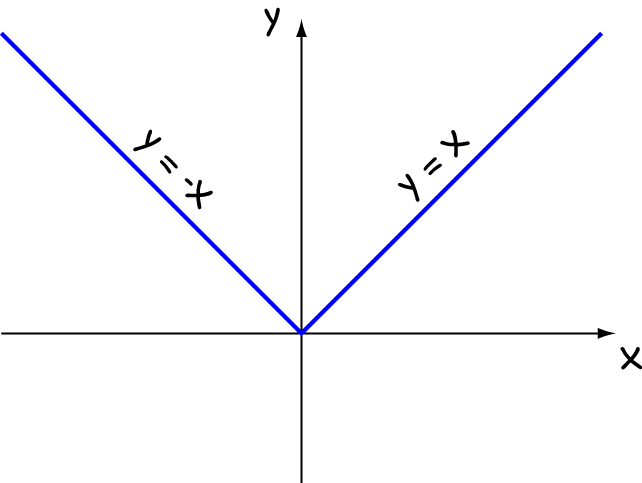
The derivative certainly exists for \(x\)-values corresponding to the straight line parts of the graph, but we'd better check what happens at \(x = 0\).
Is the derivative defined at x = 0?
Remember that the derivative is a slope? That's why I'm a bit worried about what's going on at \(x = 0\) in this function. The slope of the graph changes abruptly. We can check whether the derivative exists at any value \(x = c\) by checking whether the following limit exists:
Let's check what happens at \(c = 0\):
- From the left: \(\displaystyle{\lim_{h \to 0^-} \frac{|h|}{h} = \lim_{h \to 0^-} \frac{-h}{h} = -1}\)
- From the right: \(\displaystyle{\lim_{h \to 0^+} \frac{|h|}{h} = \lim_{h \to 0^+} \frac{h}{h} = 1}\)
Visualising Differentiable Functions
If you were to put a differentiable function under a microscope, and zoom in on a point, the image would look like a straight line.
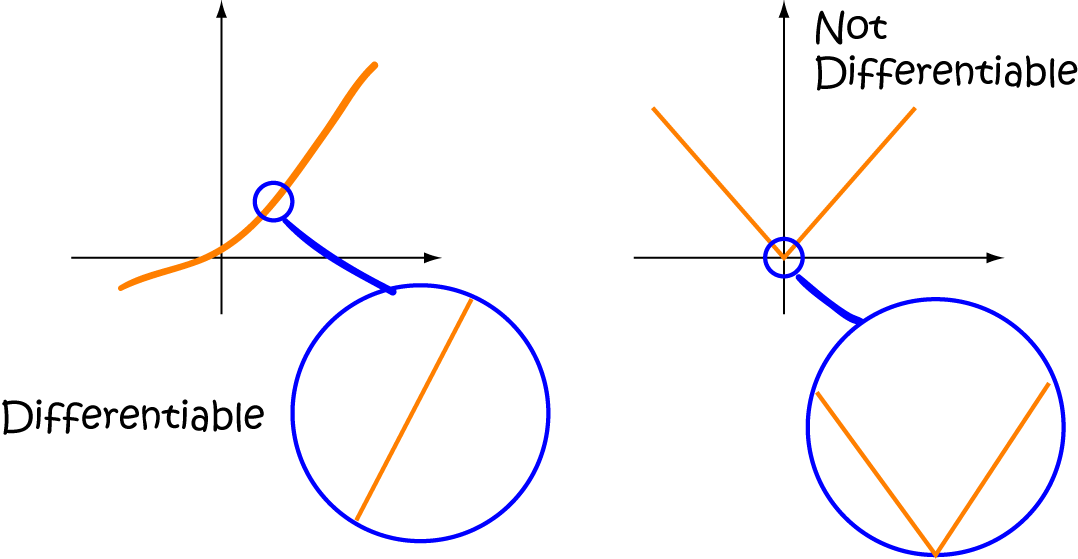
When you zoom in on the pointy part of the function on the left, it keeps looking pointy - never like a straight line. So this function is not differentiable, just like the absolute value function in our example.
Other problem children
Here are some more reasons why functions might not be differentiable:
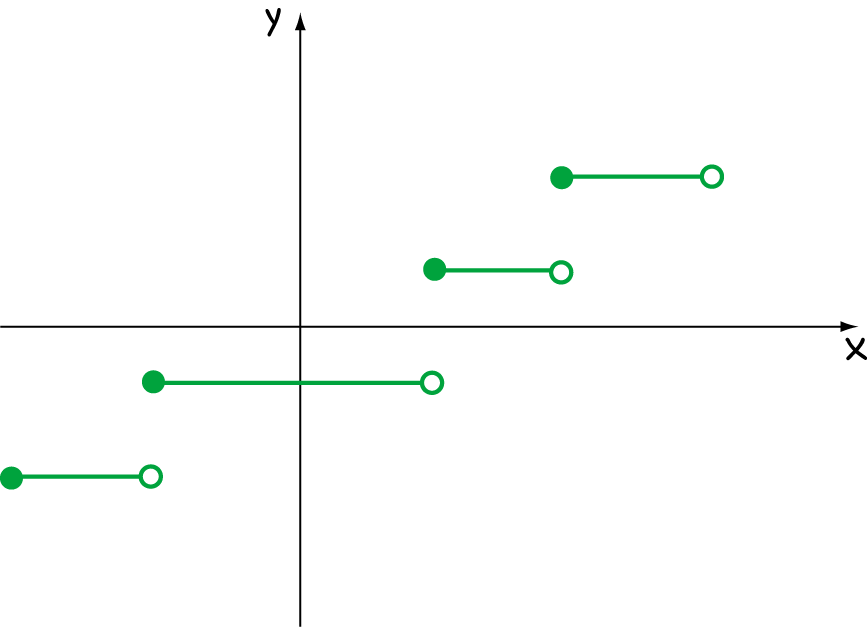
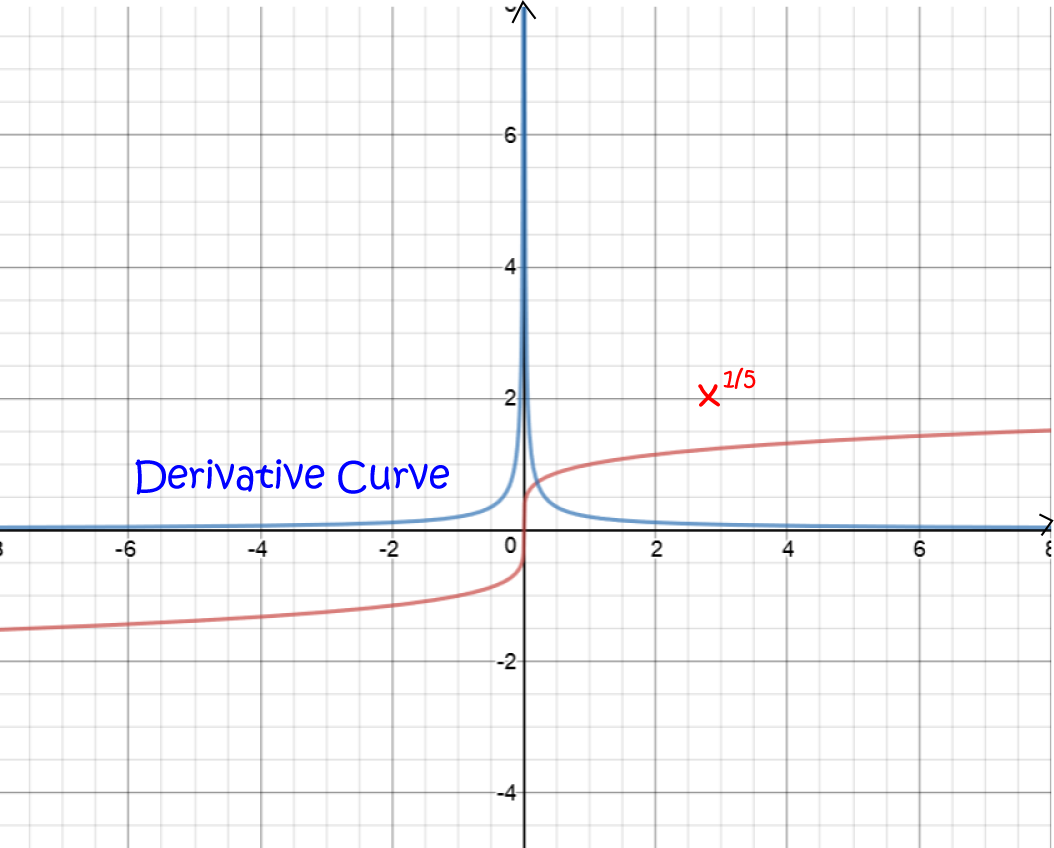


Does restricting the domain help a function to be differentiable?
It can, provided the new domain doesn't include any points where the derivative is undefined!
Example:
Is the function \(g(x) = |x|\), with domain \((0,\infty)\) differentiable? The interval \((0,\infty)\) refers to all the positive real numbers, and does NOT include zero. We know that \(g(x) = x\) on this interval, and this is definitely a differentiable function. So, the answer is 'yes!': the function \(g(x)\) is differentiable over its restricted domain.Of course there are other ways that we could restrict the domain of the absolute value function. It will be differentiable over any restricted domain that DOES NOT include zero.
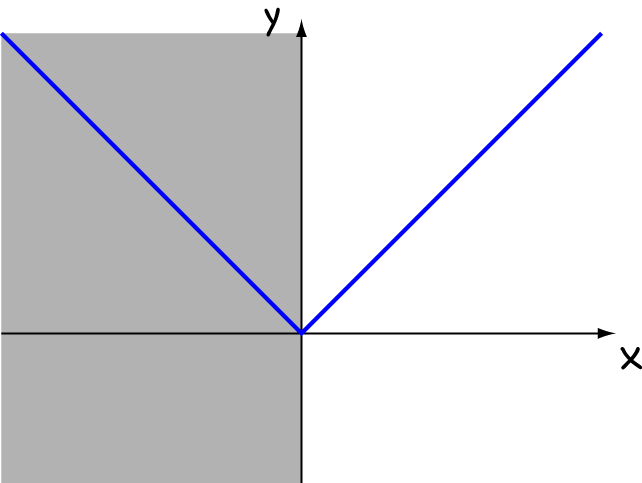
Why do we care?
We care about differentiable functions because they're the ones that let us unlock the full power of calculus, and that's a very good thing!
A remark about continuity and differentiability
If a function is differentiable, then it must be continuous. However, there are lots of continuous functions that are not differentiable. The absolute value function that we looked at in our examples is just one of many pesky functions.
Description
Calculus is the branch of mathematics that deals with the finding and properties of derivatives and integrals of functions, by methods originally based on the summation of infinitesimal differences. The two main types are differential calculus and integral calculus.
Environment
It is considered a good practice to take notes and revise what you learnt and practice it.
Audience
Grade 9+ Students
Learning Objectives
Familiarize yourself with Calculus topics such as Limits, Functions, Differentiability etc
Author: Subject Coach
Added on: 23rd Nov 2017
You must be logged in as Student to ask a Question.
None just yet!